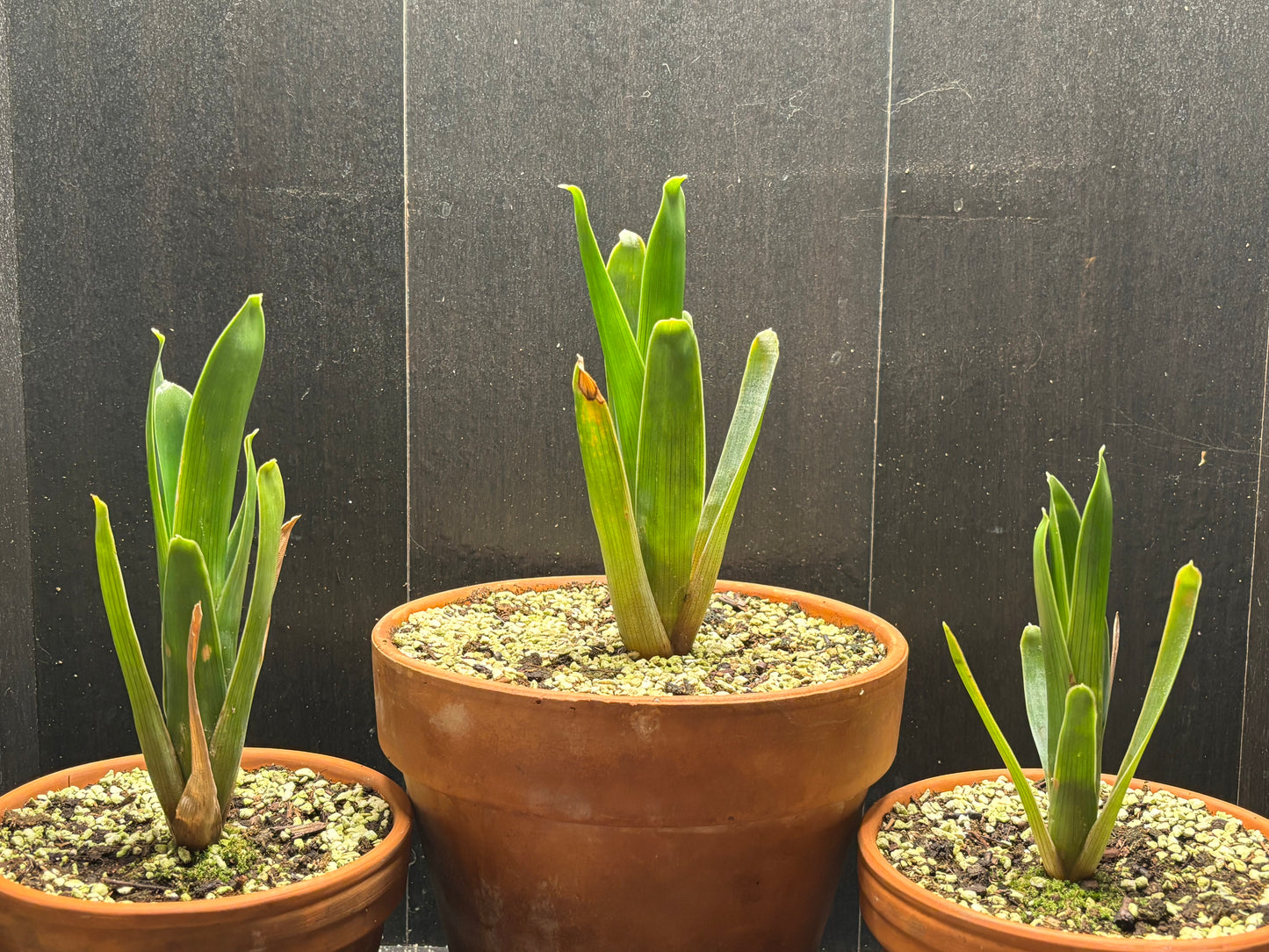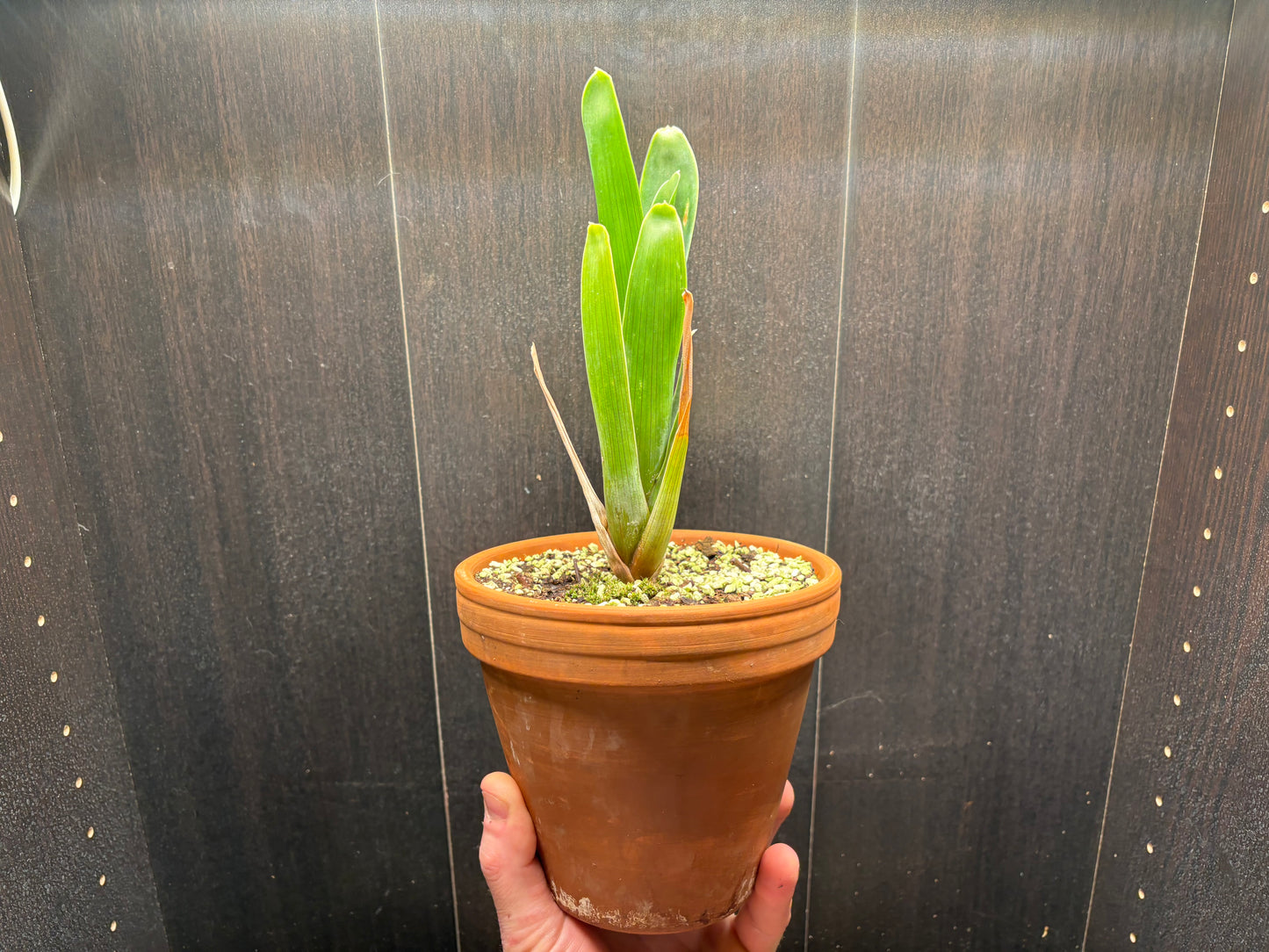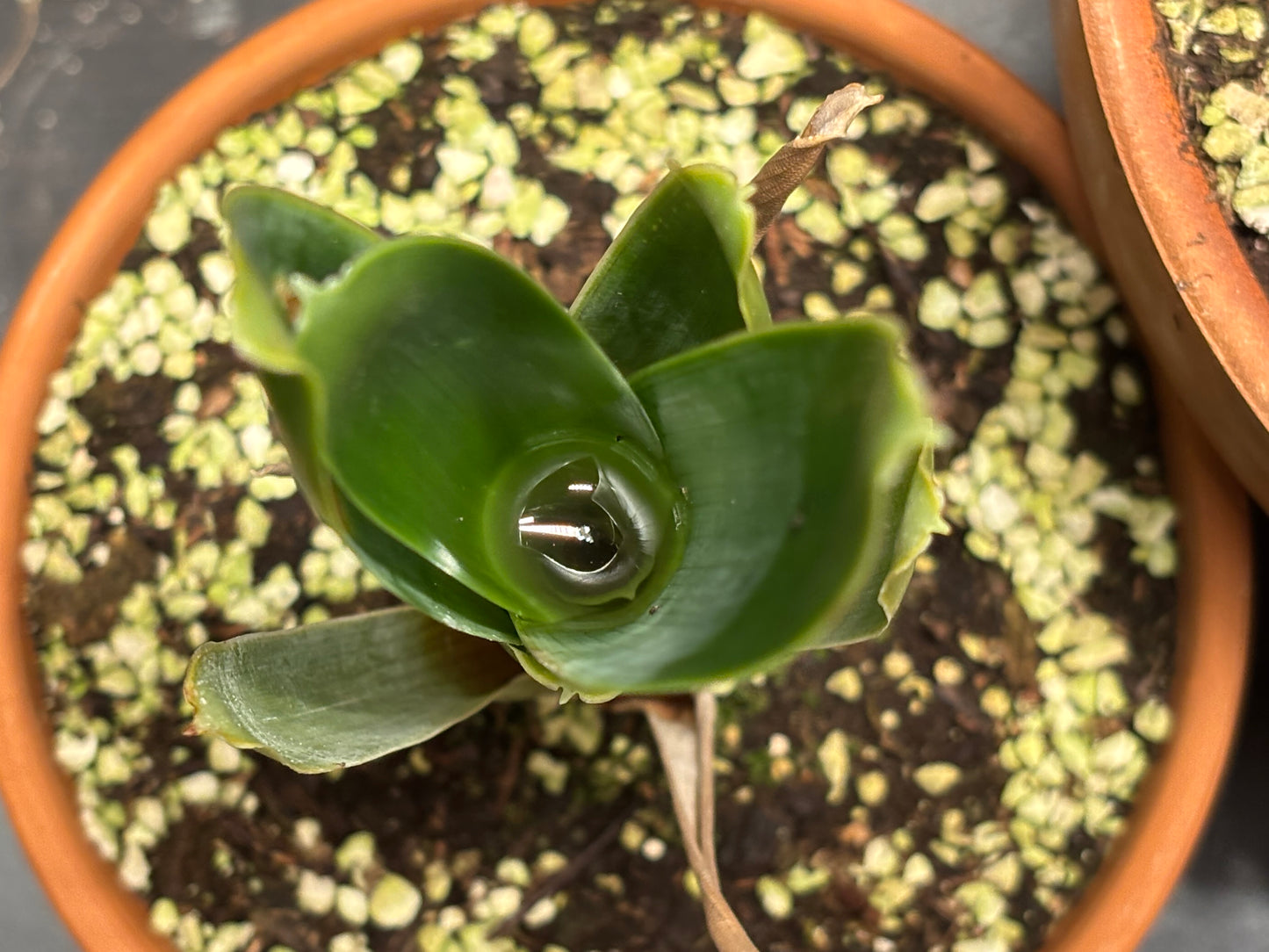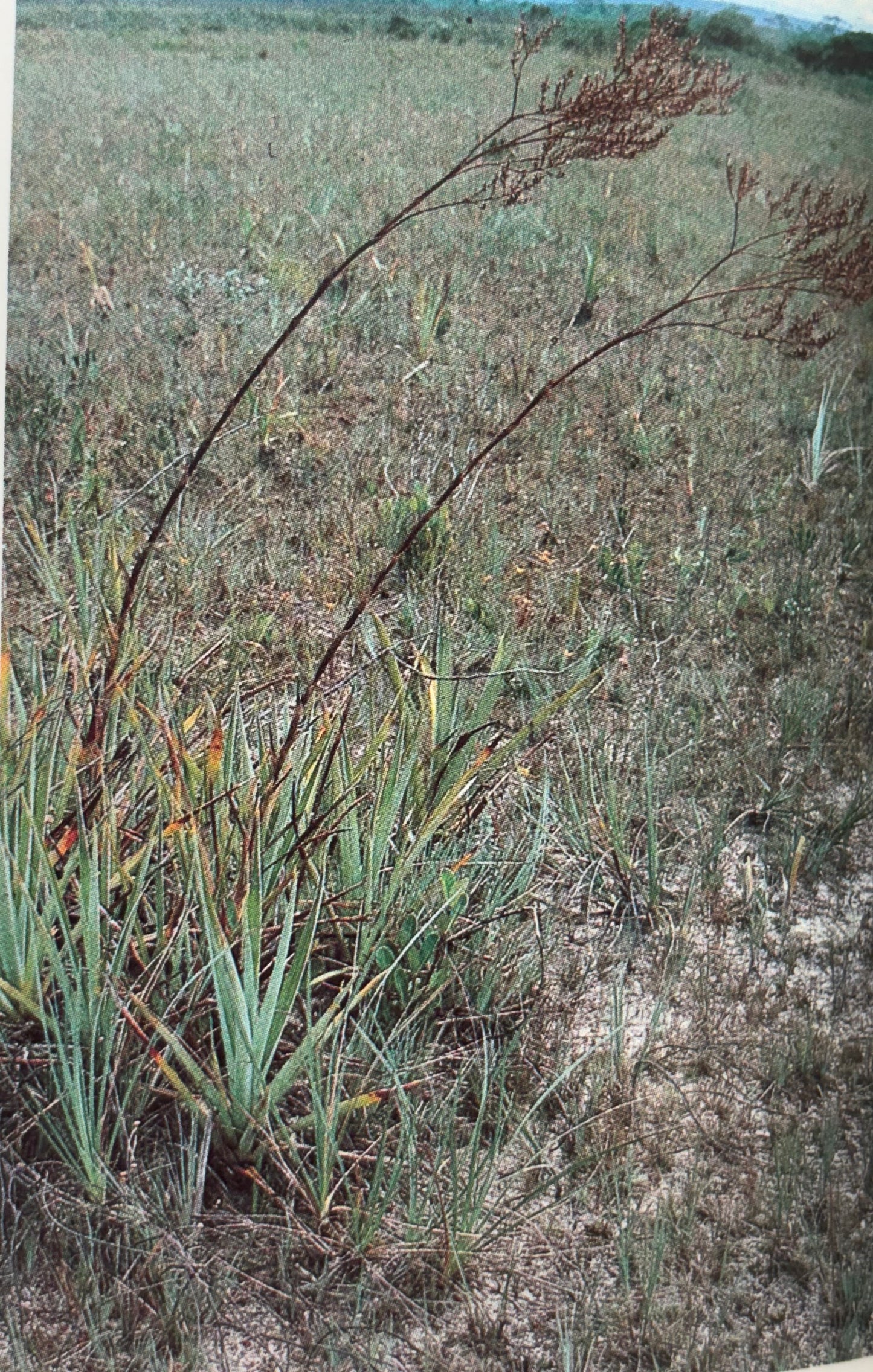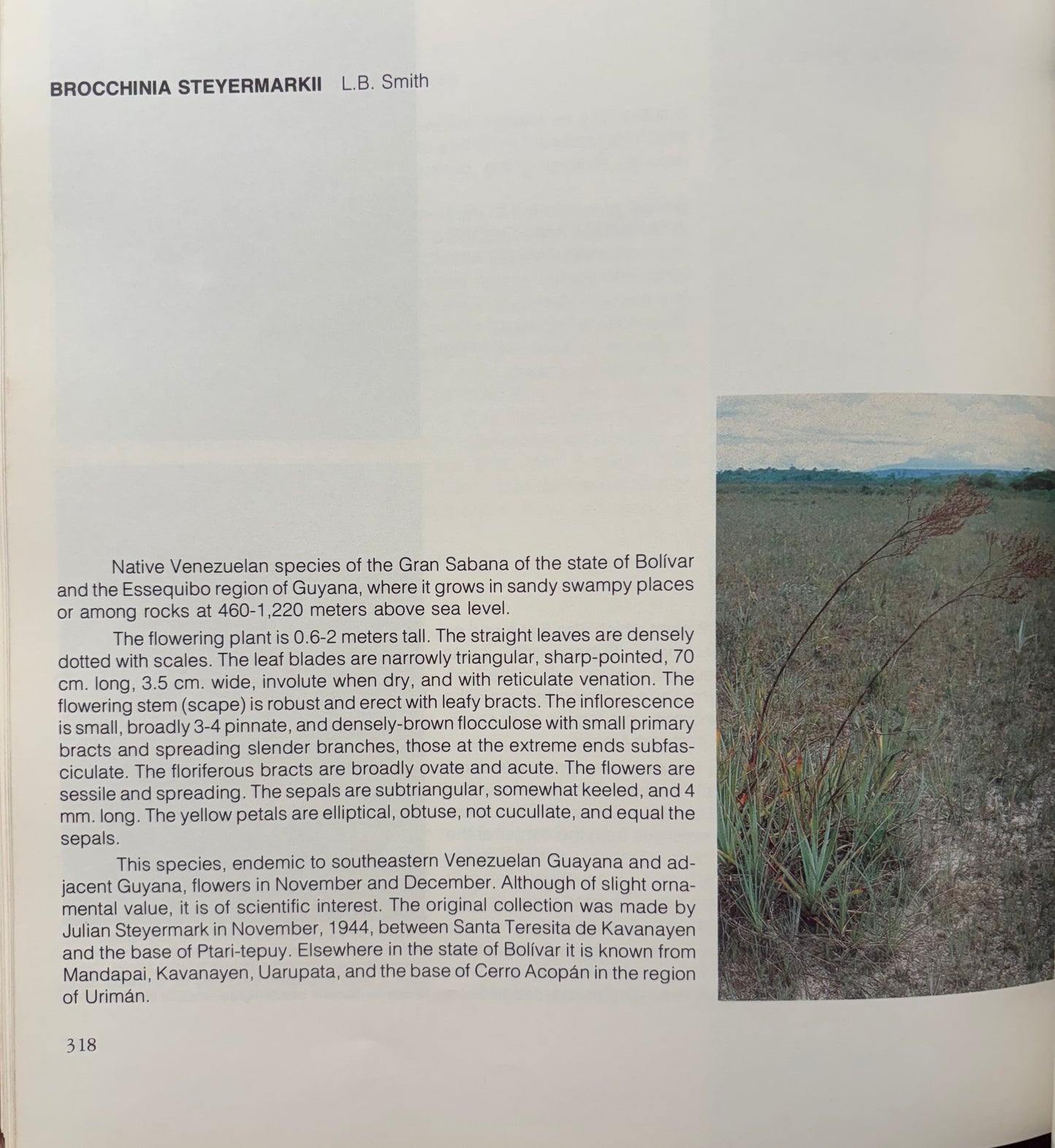Brocchinia steyermarkii
Brocchinia steyermarkii
Couldn't load pickup availability
*Rarely offered**
SCIENTIFIC NAME: Brocchinia steyermarkii
COMMON NAME: (Rare in cultivation)
PLACE OF ORIGIN: The Tepui mountains and Gran Sabana,Venezuela.
GENERAL INFO: Brocchinia steyermarkii is a Bromeliad from the Gran Sabana, and Tepui regions of
Venezuela. This species is a sister to the famed carnivorous Brocchinia reducta. Endemic to Venezuela specifically the Gran Sabana surrounding the Tepuis, Brocchinia steyermarkii is named after legendary Venezuelan botanical explorer Julian Steyermarkii. This plant is very rare in cultivation (no mature cultivation photos can be found online) and based on photos from Venezuelan botany literature, has an appearance somewhat between B. Reducta and B. Acuminata. A terrestrial bromeliad with pointed leaves and waxy, water filled resorioirs which may serve to catch prey similarly to Its more popular sister. Available plants are growing quickly and are currently 6 to 8 inches tall.
WATER: B.steryermarkii is considered terrestrial, growing almost exclusively on the ground. ALWAYS ensure at least some water is maintained in the central reservoir. The soil should be saturated with a dry back period in between.
SOIL: We use a 60/40 or 70/30 perlite to peat or long fiber sphagnum mix for all Brocchinia.
CONTAINERS: We prefer terracotta pots, 12 inches or larger in size for this species. Plastic pots of the same
size are also adequate
LIGHT: Brocchinia should be pampered with as much full spectrum light as possible! Maintain 12-18 hours of full spectrum grow lights or extremely sunny natural conditions.
FERTILIZATION: We recommend using MAXSEA brand fertilizer for all carnivorous plants. The plants will naturally catch pests, and these can be
‘fed’ to the plant by simply dropping them into the water well. Fertilize once every 2 weeks in spring
and summer, and once a month in winter. Never let fertilizer touch flowers






